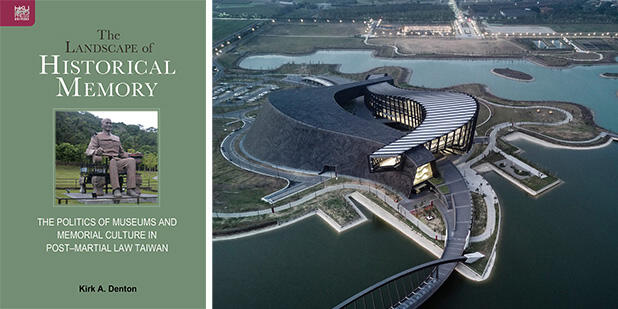Prof. Denton discusses his new book, The Landscape of Historical Memory. He explores the place of museums and memorial culture in the contestation over historical memory since martial law ended in Taiwan in 1987. He’ll look at the role of politics—especially political parties—in the establishment, administration, architectural design, and historical narratives of museums. It is framed around the wrangling between the “blue camp” (the Nationalist Party, or KMT, and its supporters) and the “green camp” (Democratic Progressive Party, or DPP, and its supporters) over what facets of the past should be remembered and how they should be displayed in a broad range of museums and memorial spaces. The case of Taiwan museums tells us much about Cold War politics and its legacy in East Asia; the role of culture, history, and memory in shaping identities in the “postcolonial” landscape of Taiwan; the politics of historical memory in an emergent democracy, especially in counterpoint to the politics of museums in the People’s Republic of China, which continues to be an authoritarian single party state; and the place of museums in a neoliberal economic climate.
Kirk Denton 邓腾克 is professor of Chinese literature at Ohio State University. He studied at Colby College and the University of Toronto. For more than twenty years he has edited the journal Modern Chinese Literature and Culture and oversaw the rich collection of materials at the MCLC Resource Center. Prof. Denton wrote The Problematic of Self in Modern Chinese Literature: Hu Feng and Lu Ling and Exhibiting the Past: Historical Memory and the Politics of Museums in Postsocialist China. His edited volumes include Modern Chinese Literary Thought: Writings on Literature, 1893-1945, China: A Traveler’s Literary Companion, The Columbia Companion to Modern Chinese Literature and Jottings under Lamplight: Lu Xun.




